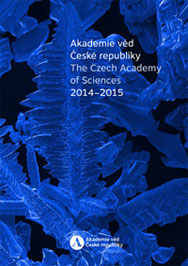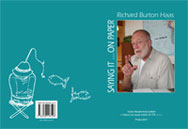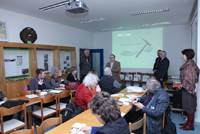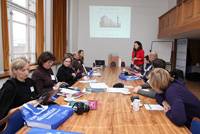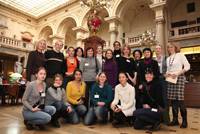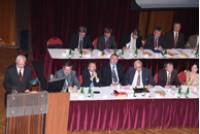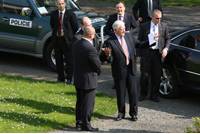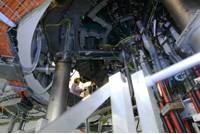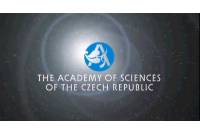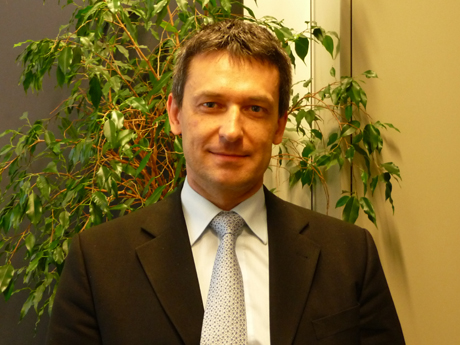
How long have you been working at the head of unit position within DG INFSO?
I joined the European Commission in September 2007. I have been lucky enough to have been
selected to head a very interesting Future and Emerging Technologies FET-Open unit managing a
portfolio of research projects looking at future and emerging technologies in ICT. We are
privileged to be interacting with some of Europe´s leading thinkers for example in neuroscience,
biology, computer science, economics, sociology, philosophy and physics, who are together
challenging the state of technology and science as we know it today. It is a real privilege to be a
part of that.
What projects are supported by FET?
This year FET is celebrating its 20th anniversary as a European research initiative. We
operate two modalities – the FET Proactive scheme, in which we try to capture what we currently
know about the
future and crystallise it around a series of known current research challenges. Typically we would launch a Proactive call to meet such a challenge. Some examples of current Proactives relate to work on Concurrent Tera-Device Computing, Quantum Information Foundations or Bio-Chemistry Based Information Technologies.
What is special about how FET-Open operates?
By operating in both top-down (FET-Proactive) and bottom-up (FET-Open) modes, we feel we can be responsive to the boldest ideas of the best scientists in Europe. To evolve, some ideas need to be brought into contact with others, to see consolidation of agendas, to fit within a context in which groups can work on challenges bigger than an individual project. Other ideas need the time to develop on their own, to overcome perhaps their inherent fragility or to provide a space in which they can grow stronger so they can effectively challenge established and sometimes deep-rooted current practices. In FET, we put a lot of emphasis on the spirit of being part of the discovery process. Many particularly younger scientists and researchers involved in FET projects tell us that the experiences they go through in working with others are first-time and sometimes life-changing experiences.
FET will typically start to detect and to explore areas long before such knowledge becomes commonplace. Typically FET will support foundational scientific work leading to the proof of concept of a new scientific approach, or for the first time bring advanced scientific groups together to co-create something new which did not exist before. FET is a place for challenging current thinking, for thinking new things for the first time. Much later, many other parts of the FP will typically pick up on the more successful outputs of FET-like research to develop concepts further, for example into mainstream applications.
We see a natural fit between our Proactive and Open schemes. Watching the trends of ideas submitted to the Open Scheme, for example, can point towards new and previously undetected areas which may be in need of some early consolidating and reinforced networking within a Proactive initiative. Similarly, Proactive initiatives themselves tend to be very focused and this can lead to some interesting ideas at the periphery of this focus being squeezed out. We often find that such ideas tend to find their way back in through the Open scheme.
What is the participation of Czech entities in the FET priority projects?
To be honest, we receive too few ideas coming directly from Czech entities at this stage. In fact, proposals coordinated by Czech coordinators account for less than 1 % of all proposals currently received, and proposals involving one or more Czech partner account for less than 6% of all proposals received! This is rather paradoxical for us since we know that Czech scientists have achieved worldwide recognition for their discoveries and innovative approaches in many scientific disciplines, from arc lamps, to lightening rods, to polarography, to medicines for treating cancer and hepatitis B, and ICT. We also know that leading universities and institutions such as the Academy of Sciences of the Czech Republic have a well-deserved global reputation for excellence.
Last year we organised a tour of leading laboratories in the Czech Republic to see first hand what is the situation for frontier research, and to see how schemes such as FET can help to develop home-grown Czech ideas. One reason for the lack of ideas entering our scheme from the Czech Republic may be the relative ease to receive national funding for frontier research compared to the EU funding. During the tour we held a very successful information day attended by some 50-60 scientists at which interaction and exchange was very lively, so I am sure there is room for much improvement in the future!
Could you please tell us a few words about the FET conference, which will take place under the Czech presidency in Prague?
The FET Conference "Science beyond Fiction" has two main goals. Firstly, it seeks to foster a dialogue between science, policy and society on the role and challenges of interdisciplinary ICT related long-term research towards the development of policy options for increasing Europe's creativity and innovation base. Secondly, it seeks to bridge diverse European research communities and disciplines and to stimulate the creation of new research collaborations empowering Europe to take the lead in future information technologies. Over three days leading scientists and policy makers will discuss the way forward for frontier research in ICT, and the changes it can herald in for our future society.
26 Mar 2009




